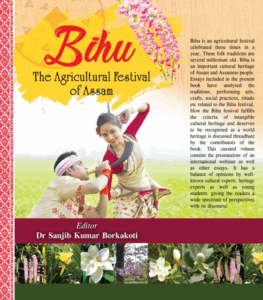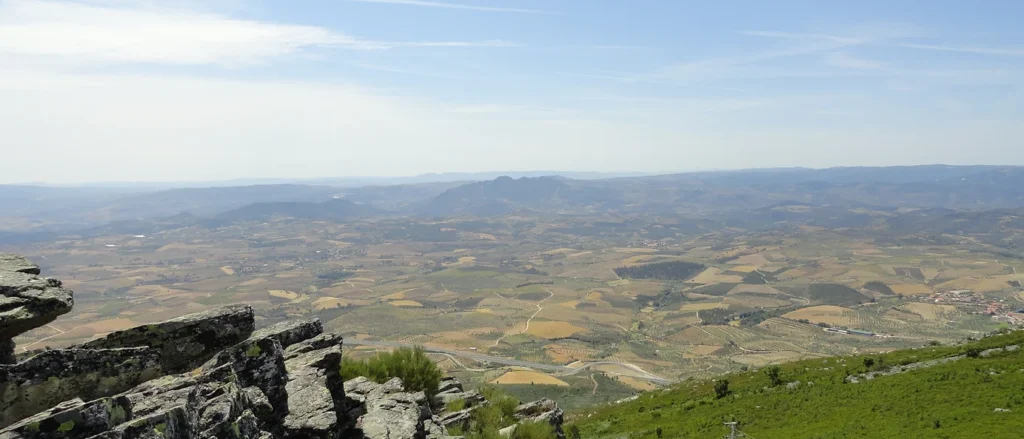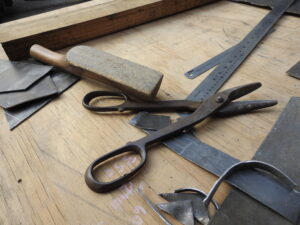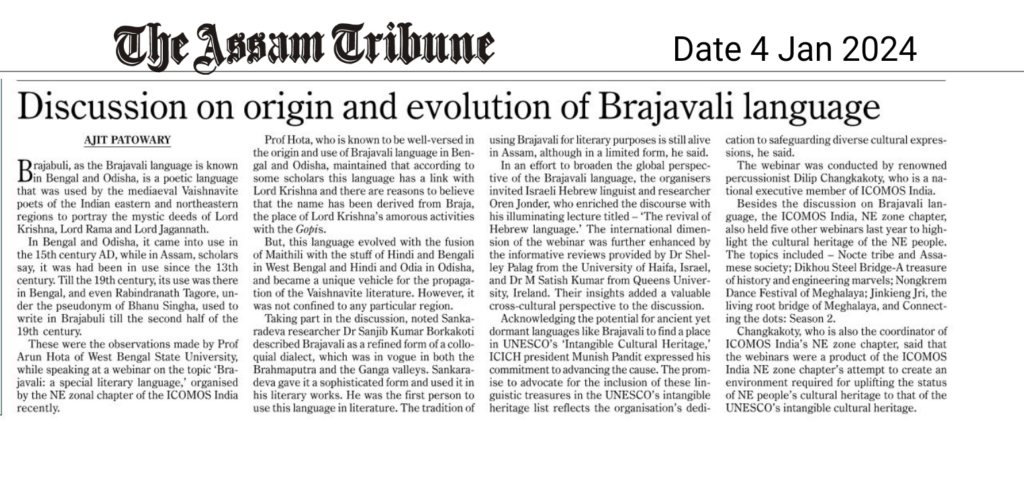“Bihu: An Agricultural Festival of Assam”
Announcing the publication of “A Milestone in Cultural Studies”
Developed under the aegis of ICOMOS India’s North East Zone, Bihu: An Agricultural Festival of Assam is a vital new contribution to the scholarly and cultural exploration of Bihu—one of India’s most dynamic and deeply rooted agrarian traditions. The volume was officially released at the 2025 Annual General Meeting of ICOMOS India.
In light of its international relevance and resonance with ICICH’s mission to safeguard and promote intangible cultural heritage, we are pleased to share the official press release below. This publication reflects not only the cultural richness of Assam but also the impactful heritage work being carried out in India’s North East—work that aligns closely with ICOMOS’s global values of inclusive, field-driven preservation.
A Milestone in Cultural Studies
“Bihu: An Agricultural Festival of Assam” – A Landmark Academic Volume
Guwahati | New Delhi – June 29, 2025

In a significant moment for cultural scholarship in India, the much-anticipated academic volume “Bihu: An Agricultural Festival of Assam”, prepared under the aegis of the North East Zone of ICOMOS India, was officially launched 29th June, 2025 at the Annual General Meeting of ICOMOS India. The volume was unveiled by Dr. Rima Hooja, President of the National Committee, who commended the extraordinary intellectual and field-based contributions of the North East Zone—the youngest among the ICOMOS zones, yet a shining exemplar of excellence at both national and international levels over the past five years.
Leading cultural experts GSVSN Murthy, Bikramjit Chakraborty, and Madhu Vottery recalled their enriching collaborations with the North East Zone, while Dr. Sanjib Kumar Borkakoti, the volume’s editor, offered a concise overview of the book’s structure and themes.
This volume is more than a documentation of a festival—it is a testament to rigorous scholarship, community-rooted research, and the unwavering commitment of heritage professionals. Conceived, initiated, and brought to fruition by Shri Dilip Changkakoty, Zonal Representative of the North East Zone of ICOMOS India, the work reflects years of solitary academic labour and visionary cultural stewardship.
The Genesis of a Cultural Journey
The scholarly journey began in 2020, with the North East Zone organizing the first-ever webinar on Bihu—a pioneering step toward bringing Assam’s intangible cultural heritage into mainstream academic discourse. This was followed in 2021 by an international essay competition, attracting researchers and cultural practitioners from across the globe. What emerged was not just a festival narrative but a nuanced socio-cultural inquiry into a living tradition shaped by agrarian life, seasonal rhythms, and evolving community identities.
A Multi-Layered Research Endeavour
Guided by Shri Changkakoty’s vision, the volume draws from field research, ethnography, oral histories, and socio-economic analyses, documenting the many dimensions of Bihu—from urban celebrations to rural rituals. The research team interacted with a broad cross-section of Bihu’s custodians: committee leaders, artisans, performers, weavers, food vendors, and cultural officials.
A notable feature of the research is its attention to the Sattriya tradition, highlighting the subtle confluences between Bihu and Sattra culture. The study is further enriched by media analysis, historical documentation, and digital ethnography—capturing transformations and continuities in Bihu practices across age groups, geographies, and social strata.
A Monument of Editorial Commitment
The making of this volume was no ordinary editorial task. Shri Changkakoty not only conceptualized the project but also personally translated Assamese contributions, ensured linguistic precision, and oversaw design and production—all without the support of a formal editorial team. His painstaking efforts ensured that every contribution retained its scholarly integrity and cultural authenticity.
Collaborative Excellence and Archival Rarity
The book brings together an impressive constellation of contributors: Dr. Prasanna Gogoi, Somnath Bora, the late Prabhat Sarmah, and Bihu icon Shubhalakshmi Pandit (Bora), alongside passionate grassroots artists whose voices animate the volume’s pages. Photographs by the late Amulya Manna and Jiten Das lend rare visual depth, transforming the publication into an archival artifact of enduring value.
Editor Dr. Sanjib Kumar Borkkakoti played a pivotal role in synthesizing these diverse voices into a scholarly, cohesive whole.
From Manuscript to Monument
Despite considerable challenges in identifying a publisher capable of honouring the academic scope of the work, the project found its ideal partner in Purbayon Publication, led by Dr. Amrit Upadhyay. Their dedication ensured that this English-language volume would meet the highest standards—designed to serve researchers, policymakers, cultural workers, and general readers alike.
A Call to the Global Heritage Community
“Bihu: An Agricultural Festival of Assam” is not merely a book—it is an invitation to the world to engage with the living heritage of Assam. In its pages, the spirit of participatory knowledge, rigorous inquiry, and ethical cultural documentation lives on. It reflects the core mission of ICOMOS India: to safeguard heritage through scholarship that is inclusive, field-driven, and future-oriented.
We extend our heartfelt gratitude to all contributors and stakeholders, and take immense pride in presenting this volume to the global cultural community. This work stands as a beacon of collective intellect, cultural pride, and scholarly endurance.
For more information, please contact:
Purbayon Publication
Jaswanta Road, Near Panbazar Aadarsha Prathamik Vidyalaya
Panbazar, Guwahati – 781001, INDIA
Mobile: +91 986 442 2157
Website: www.purbayonpublication.com



 Join the Australia ICOMOS National Scientific Committee Intangible Cultural Heritage and our panel of experts to discuss how Intangible Cultural Heritage (ICH) can inform high quality conservation outcomes.
Join the Australia ICOMOS National Scientific Committee Intangible Cultural Heritage and our panel of experts to discuss how Intangible Cultural Heritage (ICH) can inform high quality conservation outcomes.
